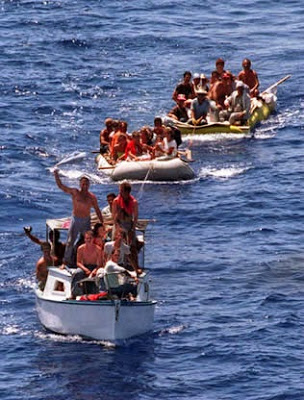
Hablemos Press, Eduardo Herrera, 4 May 2015 — In Cuba, the constant emigration of its citizens can reveal what is the standard of living on the Island. Many of those who do not know the reality of life in Cuba should consider this fact and arrive at their own conclusions.
Cubans are willing to go live in countries supposedly poorer and with worse living conditions.
Starting in 2013, a new horizon appeared for those who wanted to emigrate: the requirement for the so-called “white card”—an exit permit for Cubans seeking to travel—was eliminated.
Even so, there are still obstacles to leaving the Island. These consist of the high prices that Cuban citizens must pay to acquire any type of documentation. Included in this is the passport, which costs about 100 dollars, while the average Cuban’s salary is 20 dollars per month.
Limiters also include the restrictions that other countries impose on Cubans arriving in their territories. Despite all this, Cubans find a way to emigrate, no matter what.
A well-known is example is that of the so-called “balseros” [rafters], who risk their lives. Sailing in rickety vessels, they try to cross the Florida Straits and reach the coasts of the United States.
Not counting those who have left the Island to settle in countries such as Ecuador, Mexico, Colombia, Peru, Angola and other. The exit strategy they most often use is an employment contract, or marriage—often arranged.
It is a great mistake when many countries recognize Cuba as providing its citizens a good standard of living. If this is so, why would so many people want to emigrate?
Many of those who leave are hopeless young people in search of a better future for themselves and their families. Those who stay behind are older—one reason that the population is aging and life expectancy appears to be high.
Thus, public opinion confuses the increase in longevity with a higher life expectancy (seen as an indicator of economic development and a measurement of health), but it is not based on reality.
Additionally, public opinion can become confused when discussing free health care and education for the entire population, without taking into considering the poor conditions of both sectors.
These and other reasons are what explain why Cubans emigrate desperately. Although many leaders and personalities may want to recognize that Cuba is doing well or is changing, we could tell them, as we say here, “There is none so blind as he who will not see.”
Translated by: Alicia Barraqué Ellison
